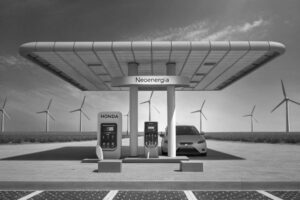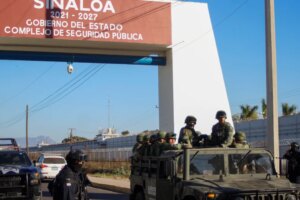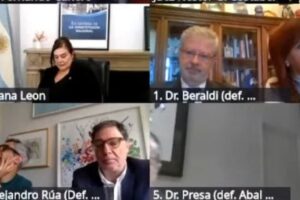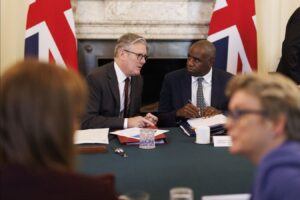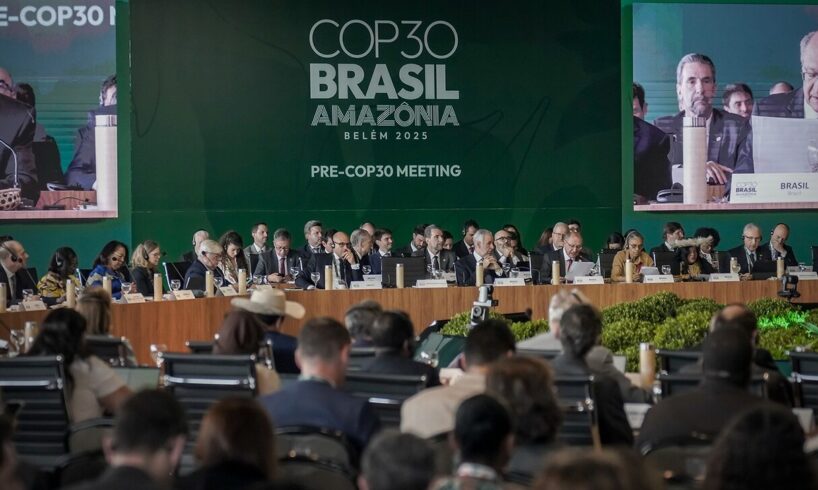
At least 62 delegations are taking part in the Pre-COP in Brasília, in preparation for the 30th United Nations Climate Change Conference (COP30) (Rafa Neddermeyer/COP30 Brazil Amazon/PR)
October 16, 2025
By Ana Cláudia Leocádio – From Cenarium
BRASÍLIA (DF) – At least 62 delegations are participating in the Pre-COP, which begins this Monday, the 13th, in Brasília, in preparation for the 30th United Nations Climate Change Conference (COP30), to be held in Belém (PA) from November 10 to 21. As host of the meeting, acting president Geraldo Alckmin highlighted Brazil’s commitment to reducing greenhouse gas emissions by 59% to 67% by 2035 and expressed frustration with the low engagement of other countries in submitting their “climate targets” by this week. Of the nearly 200 countries that make up the United Nations Framework Convention on Climate Change (UNFCCC), only 62 have submitted their so-called Nationally Determined Contributions (NDCs).
“Many countries are trying to integrate a development logic into their NDC. We are frustrated, yes, which makes it difficult to calculate the synthesis report. But, according to the latest figures, we have 62 NDCs formally submitted, and the UN expects 125 by COP30. It is very important that some key countries, with a significant share of emissions, present their NDCs,” Alckmin said in his opening speech.
The vice president of the Republic, Geraldo Alckmin, during his opening speech at the Pre-COP (Rafa Neddermeyer/COP30 Brazil Amazon/PR)
Since 1995, except for 2020 due to the Covid-19 pandemic, the Conferences of the Parties (COPs) have been held annually. Belém will host the 30th meeting to discuss, above all, the implementation of the commitments made under the Paris Agreement, adopted during COP21 in 2015 in the French capital. Over these ten years of the agreement’s existence, an entire framework has been built to move those commitments from paper to practice, with few tangible results so far-especially regarding climate finance for developing countries.
Therefore, there are high expectations for the Conference in Belém, which is hoped to truly be the COP of implementation, one of collective action to prevent global temperatures from rising more than 1.5 degrees Celsius, as established by the Paris Agreement. In total, there are 140 “mandated topics,” meaning issues already defined by other COPs that must be decided in Belém through a consensus-based system.
According to the acting president, the Brazilian Presidency of COP30 proposes three central objectives for the Belém Conference: first, to reinforce multilateralism and the climate change regime within the UN Framework Convention; second, to connect the climate regime to the real lives of people; and third, to accelerate the implementation of the Paris Agreement through measures that encourage structural adjustments in all institutions capable of contributing to this goal.
Brazil presented its NDC in November 2024 during COP29 in Baku, Azerbaijan. In his opening remarks at the Pre-COP, Alckmin recalled that this commitment included reducing net greenhouse gas emissions by 59% to 67% by 2035, compared to 2005 levels, an ambitious target by global standards.
“This new NDC reflects Brazil’s vision for 2035 — a country that acknowledges the climate crisis, embraces the urgency of building resilience, and charts a roadmap toward a low-carbon future for its society, economy, and ecosystems. It is a bold but realistic plan for emission cuts, providing for economic growth aligned with energy transition and forest protection, reflecting our commitment to sustainable development,” Alckmin stated.
An aerial view of downtown Belém, in Pará, the host city of COP30 (Augusto Miranda/Ag. Pará)
For the Brazilian Presidency of COP30, although this Pre-COP, taking place on Monday, the 13th, and Tuesday, the 14th, in Brasília, is not part of the official UNFCCC calendar, it represents a strategic opportunity for countries to align political and technical positions on key global climate agenda challenges such as climate finance, energy transition, adaptation, and biodiversity preservation. During the plenary, informal consultations will be held to assess the progress of proposals to be discussed in Belém and to identify those facing the most difficulty.
In addition to the adaptation agenda, which encompasses many issues central to Brazil’s priorities, the country’s main proposal is the creation of the Tropical Forests Forever Fund (TFFF), designed to reward those who preserve their forests.
Finance Minister Fernando Haddad, who coordinates one of the four circles created by the COP30 Presidency, the Finance Circle, highlighted the creation of the fund as one of three strategic initiatives under the Belém Conference Action Agenda. The second is the Open Coalition for Carbon Market Integration, aimed at harmonizing and ensuring the interoperability of regulated markets; and the third is the Supertaxonomy, intended to ensure comparability and integrity among national taxonomies and guide sustainable investments.
The Minister of Finance, Fernando Haddad, during his speech at the Pre-COP (Rafa Neddermeyer/COP30 Brazil Amazon/PR)
“On the eve of COP30, we bring a clear message to Belém: there is a shared path being built, with ambition and realism, so that finance serves the ecological transformation the world demands,” said Haddad.
Other mobilization circles
Alongside Haddad, Environment and Climate Change Minister Marina Silva coordinates the Global Ethical Stocktake (GES) Circle, and Indigenous Peoples Minister Sônia Guajajara coordinates the Peoples’ Circle, which brings together Indigenous peoples and traditional communities. The fourth circle is composed of former COP presidents.
Guajajara reinforced the importance of recognizing Indigenous peoples as part of climate solutions, emphasizing that their territories are true carbon sinks. In addition to demanding greater participation for these peoples, the minister also called for recognition of environmental defenders.
The Pre-COP takes place on October 13 and 14, in Brasília (Rafa Neddermeyer/COP30 Brazil Amazon/PR)
Marina Silva coordinates the Global Ethical Stocktake, a document prepared in parallel with the Global Stocktake of the Paris Agreement, based on ethical and moral parameters. According to Marina, the GES is an initiative conceived by President Luiz Inácio Lula da Silva in collaboration with United Nations Secretary-General António Guterres.
“Inspired by the Global Stocktake of the Paris Agreement, the Global Ethical Stocktake was born from the conviction that ethics cannot serve merely as rhetoric in the climate debate. Ethics is, above all, one of its main foundations. It gives meaning to action; it reminds us that confronting the climate emergency also means facing a moral and civilizational crisis,” the minister declared.
Edited by Adrisa De Góes
Translated by Gustô Alves
Source

